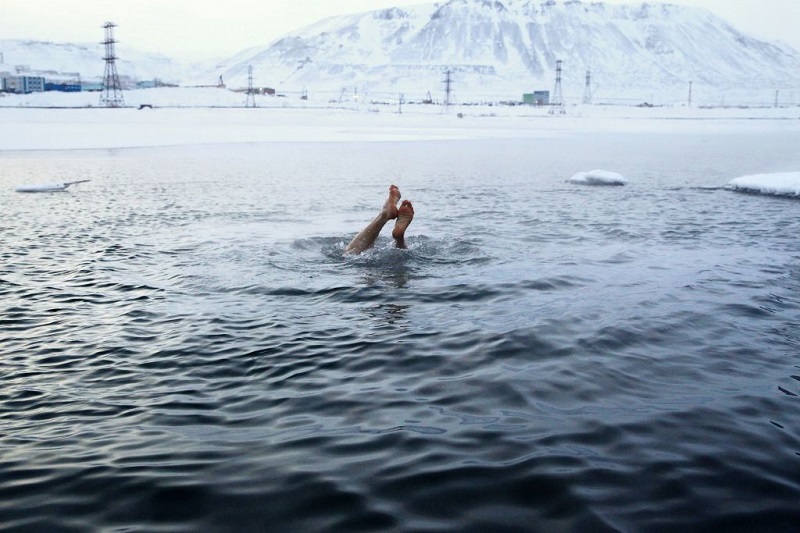While Russia's activity in the Arctic is relatively widely commented on, much less known are the recent actions taken by the Russians at the opposite pole – in the Antarctic. Despite the international ban on the extraction of natural resources there, Moscow recently conducted seismic surveys, estimating the abundance of local oil and gas deposits. There is still a long way to go before the actual race for Antarctic resources, but this issue will increasingly appear in the public debate.
This February, the Russian state-controlled company Rosgieołogija announced the completion of the seismic surveys program as part of the so-called “65th Antarctic Expedition”. During this campaign, sections of the Riiser-Larsen Sea off the coast of Eastern Antarctica with a total length of about 4,400 km (2,734 mi) were profiled. This was the first such case on the part of Russians since the 1990s. As explicitly stated in the official press release, the aim of the research was, among others, to investigate the “oil and gas potential of the Antarctic shelf.”
The following stage of the “Expedition” was summarized two months later, in mid-April. As reported by Rosgieołogija again at that time, the company also carried out aero-geophysical surveys (specialist photographs taken on board the aircraft, which help to make estimates of the area's raw material abundance) on a total area of about 15,000 km2 (5,791 sq. mi) in the south-western part of the Queen Mary's Coast. Although this time there was no direct indication of the motivations behind the conducted surveys, it seems obvious that their reason was again the desire to recognize the raw materials potential of the region.
- Read also: Digital Heart of the Three Seas
The aforementioned announcements have gone unnoticed, which is hardly surprising in the face of the ongoing COVID-19 pandemic. However, the matter of interest has its significance, as it is commonly estimated that there are huge deposits of oil and gas and other natural resources in the Antarctic. For instance, the Russians themselves highlight that up to 70 billion tons of hydrocarbons can be expected in the sectors they have profiled around the Antarctic so far. What then stands in the way of these resources being exploited?
First of all, at present the so-called Antarctic Treaty of 1959 remains in force, to which a number of countries, including Russia, but also the United States or Poland, are parties. One of the subsequent protocols to the aforesaid agreement, the so-called Madrid Protocol of 1991, prohibits any activities leading to the extraction of natural resources in the region, except for scientific research. This provision is to remain in force at least until 2048, when a decision on its maintenance or revision has to be made. However, this issue will certainly be discussed many years in advance – through official conferences and meetings as well as behind-the-scenes trading and lobbying activities.
Secondly, for the time being, the climatic and geographical conditions in the region are also an issue. Antarctica remains ice-capped, essentially being isolated from the rest of the world. As a result, regardless of any Antarctic Treaty provisions, it is hard to imagine that any mining project around the South Pole currently has its economic and business justification. This situation will only change over the next decades and with the expected melting of glaciers (in addition to possible further technological advances). The “opening up” of the Antarctic to man will at the same time enable more profitable attempts to exploit the natural resources there.
***
Even if oil and gas production in the Antarctic is still a distant future, it is already worth following the developments in this area. This applies both to possible further drilling and research in the region, but also to the strategies and concepts released by the individual countries. Much is said about the race for the Arctic (including the United States, e.g. through the efforts of Donald Trump to buy Danish Greenland), likewise the exploitation of Antarctic resources may become a geopolitically significant topic in the next decades.
Coming back to Russia itself – who knows if Moscow does not believe that when the extraction of oil and gas in the Antarctic is possible (and profitable) one day, then Russian entities will be in a privileged position, having experience of similar undertakings at the opposite geographical pole – in the Arctic. Although the pace of development of Russian projects in the Far North has slowed down due to the sanctions imposed by the USA and the European Union after the annexation of Crimea in 2014, these restrictions have not stopped the development of Russian competences in the LNG sector and do not prevent oil companies (such as Rosneft) from formulating ambitious investment plans. Only time will tell whether the Russians' strategy towards the Arctic will also prove useful in the Antarctic.
Mateusz Kubiak- a graduate of Eastern Studies and International Relations at the University of Warsaw. Caucasus geopolitics expert.
Author: Redakcja Warsaw Institute




